How to Display Your Coin Collecting Collection
If you’re anything like the passionate coin collectors I work with every day at Global Coin, your coin-collecting journey likely began with a particular coin that sparked a lifelong fascination. Maybe it was a gold coin gifted to you, a...

If you’re anything like the passionate coin collectors I work with every day at Global Coin, your coin-collecting journey likely began with a particular coin that sparked a lifelong fascination. Maybe it was a gold coin gifted to you, a silver coin found at a flea market, or even a rare coin with a unique mint mark that piqued your interest.
Over time, one coin became ten, then hundreds. Before you know it, you've created an impressive coin collection—and you’re left asking: what’s the best way to organize, display, and preserve this growing numismatic asset?
Whether you’re investing in bullion, hunting down war nickels or Morgan dollars, or curating historical foreign coins, the way you organize your coin collections reflects both your personal narrative and your investment strategy.
Let’s walk through essential tips to organize and display your coin collection like a pro—while protecting its long-term value.
Coin Collecting: First Step - Understanding the Value of Organizing Your Collection

Organizing your coin collection is about more than tidiness—it’s about preserving the value, provenance, and potential of every single coin you own. If you ever decide to sell a portion of your collection or pass it on, a well-organized catalog with high-quality documentation can mean the difference between a smooth, profitable transaction and costly mistakes.
Having a clear idea or plan for how you want to organize and catalog your coins helps you set collection goals, make informed decisions, and maintain a systematic approach as your collection grows.
The American Numismatic Association even suggests that organizing your coin collection is one of the most important steps in becoming a serious coin collector.
Introduction to Coin Collecting

Coin collecting is a captivating pursuit that brings together history, artistry, and the thrill of discovery. Whether you’re drawn to the gleam of gold coins, the timeless appeal of silver coins, or the challenge of tracking down rare coins, building a coin collection offers endless opportunities for learning and enjoyment. Many coin collectors begin by saving coins from everyday change, inheriting a family collection, or making their first purchase from a trusted dealer.
As you start your journey, it’s important to familiarize yourself with the different types of coins—such as Morgan Dollars, War Nickels, and Lincoln Cents—and to understand the significance of each denomination, date, and mint mark. Resources like the American Numismatic Association (ANA) provide invaluable guidance on grading, authentication, and valuation, helping collectors make informed decisions. The Red Book is another essential tool, offering detailed information to help you identify and organize your coins accurately.
Organizing your coin collection from the very beginning not only makes it easier to enjoy and expand your collection but also helps you track the value and provenance of each coin. Whether you’re interested in numismatic history or simply want to build a collection of gold and silver coins, taking the first step to organize and identify your coins sets the foundation for a rewarding collecting experience.
How Should I Organize My Coin Collection?

Start by separating your coin collections into clearly defined categories:
-
By Country or Region – U.S., foreign coins, ancient coins, etc.
-
By Metal – Gold coins, silver coins, copper, platinum, etc.
-
By Type – Proof coins, bullion, commemoratives, circulation coins.
-
By Denomination and Date – Especially important when tracking coins like Lincoln cents, Morgan dollars, or war nickels.
-
By Historical Significance – Coins that marked major events, wars, or political transitions.
These categories help collectors identify gaps in their coin collection and simplify their search when acquiring a particular coin or selling a duplicate. As you organize, you can fill albums, trays, or display cases by category to showcase your collection and keep it well-ordered.
Use the Right Storage and Holders

Selecting the right holder for each coin type is crucial for both preservation and presentation of your collection. Avoid PVC plastic flips, which can damage coins over time. Instead, opt for:
-
Archival-quality albums
-
Non-PVC flips and airtight capsules
-
PCGS or NGC slabs (for certified rare coins)
-
Wooden or velvet-lined display cases
Collectors who are concerned about accidental damage, such as dropping a coin, should always use secure storage methods and handle coins over a soft surface to minimize risk. Proper storage protects your collection from environmental damage, theft, and accidental drops. The value of your coins depends as much on quality preservation as it does on rarity or historical importance.
Cataloging: How to Track and Record Every Coin
A comprehensive catalog is your best defense against lost information and disorganization. This is where coin collecting moves from hobby to wealth management. Here’s what to record:
-
Date and Mint Mark
-
Type and Denomination
-
Metal Composition (Gold, Silver, etc.)
-
Condition/Grade (from PCGS, NGC, etc.)
-
Purchase Price and Date (track the total cost of acquiring each coin, including any certification fees)
-
Current Value Estimate
-
Notes on Origin, History, or Additional Information
-
Sales Record if Sold
-
Use a pen to write details in a physical ledger or notebook for permanent record-keeping.
Use a spreadsheet, coin-collecting app, or dedicated software. Keep a backup on your computer or cloud account and print a physical copy for safekeeping. Collectors should regard careful documentation as essential for maintaining the value and security of their collection. This detailed system makes your collection easier to insure, sell, or appraise in the future.
Collectors can also use Google to search for coin inventory software or cataloging tools.
Rare Coin Considerations

For coin collectors, rare coins represent both a passion and a potential investment. The value of rare coins is influenced by several factors, including the coin’s date, mint mark, denomination, and overall condition. For example, a coin with a unique mint mark or a limited mintage can command a significant premium in the market. Authenticity is crucial—counterfeit coins are a real risk, so it’s wise to have rare coins certified by reputable services like PCGS or ANACS to ensure their legitimacy and protect your investment.
When buying or selling rare coins, always pay close attention to provenance and documentation. A well-documented coin with a clear history is more attractive to buyers and can fetch a higher price. Protecting your rare coins is equally important; store them in secure holders or a safe deposit box to guard against theft and environmental damage. By taking these precautions, collectors can safeguard the value of their rare coins and enjoy peace of mind as their collection grows.
Displaying Your Collection: Turning Coins into Conversation Pieces

Your coin collection isn’t just valuable—it’s also personal. Showcasing your gold coins, silver coins, and unique commemoratives creates a visual experience that highlights your journey as a collector.
Coin Collection Display Ideas:
-
Shadow boxes for themed sets (e.g., Morgan dollars by year)
-
Glass-top cabinets to show off gold and bullion coins
-
Wall-mounted frames for rare coins or foreign coins with stunning visuals
-
Rotating displays to spotlight a “coin of the month”
Display with intention. Group by theme or historical period. Include labels with date, mint mark, denomination, and notes to educate others or remind yourself why a particular coin was important to you.
Coin Collector Community
The coin collector community is a welcoming and dynamic network where enthusiasts of all experience levels come together to share their love of coins. Connecting with other coin collectors—whether online through forums and social media, or in person at local coin clubs and shows—opens up a world of knowledge and opportunity. Collectors often exchange tips, discuss the latest trends, and even buy, sell, or trade coins with one another.
Participating in the community also means access to events like coin shows and auctions, where you can discover new coins, meet dealers, and expand your collection. Organizations such as the American Numismatic Association offer valuable resources, educational programs, and advocacy for collectors. By engaging with the coin collector community, you’ll stay informed, build lasting relationships, and enhance your enjoyment of the hobby.
Common Mistakes Coin Collectors Make
Even seasoned collectors make errors. Here are some mistakes to avoid:
-
Cleaning Coins – Don’t. Ever. Cleaning removes patina and drops the value drastically.
-
Using Ziploc Bags – These can trap moisture and release chemicals. Store in archival holders.
-
Failing to Track Purchases – Keep receipts, track provenance, and note all sales.
-
Mixing Bullion with Collectibles – Keep bullion separate from graded or collectible coins.
One overlooked mistake can reduce the quality and resale value of your coin. No matter how organized or careful you are, certain mistakes can still significantly affect your collection's value.
Maintaining the Collection
Keeping your coin collection in top condition requires ongoing care and organization. Coin collectors should regularly examine their coins to check for any signs of damage or environmental exposure. Always handle coins by the edges and avoid touching the surfaces to preserve their quality and value. Store your coins in albums, folders, or holders designed specifically for numismatic items, and keep them in a cool, dry place away from direct sunlight and moisture.
Staying organized is key—maintain an up-to-date inventory of your collection, noting details like date, denomination, and value. Using computer software or online tools can make it easier to track your coins, monitor changes in value, and prepare for future buying or selling decisions. By taking these steps, collectors can ensure their collection remains protected, organized, and ready for any opportunity.
Insuring the Collection

Protecting your coin collection with proper insurance is a smart move for any serious collector. The value of coins—especially rare and precious metal pieces—can be significant, making them a target for theft or loss. Seek out an insurance policy that covers the full value of your collection, including coverage for rare coins, bullion, and any coins stored off-site in a safe deposit box or vault.
Work with an insurance provider experienced in numismatic collections to ensure your policy addresses the unique needs of coin collectors. Regularly review and update your coverage as your collection grows or changes in value, so you’re always protected against unforeseen events like theft, fire, or natural disasters. With the right insurance in place, you can focus on building your collection with confidence, knowing your investment is secure.
Selling Coins: When and How to Sell a Coin Collection

If you decide to sell part of your coin collection, don’t rely on general marketplaces like eBay without first knowing your coin’s true value. Understanding the amount of money at stake when selling coins is crucial, as maximizing your returns depends on proper valuation and smart selling strategies.
When selling coins online, always consider shipping options and insurance to ensure your coins are delivered safely and securely.
Use these tips to avoid being taken advantage of:
-
Get your coins graded by a trusted service like PCGS.
-
Record all coin details, especially mint marks and historical notes.
-
Work with a coin dealer or service with a verified sales history.
-
Only sell gold coins and rare coins after getting multiple offers.
At Global Coin, we help coin collectors understand exactly what they own before they sell—and what buyers are really looking for.
Additional Information and Resources for Serious Collectors
-
Join the American Numismatic Association for access to coin shows, grading standards, and collector tips.
-
Use the Red Book as a yearly reference for values, dates, and mintage info.
-
Track coin values using PCGS price guides or Global Coin services.
-
Create a digital gallery with images and notes for sharing your collection online.
-
Look for online ads or recommendations to discover reputable coin inventory software, storage products, or certification services.
Ready to Upgrade or Expand Your Collection?

Your collection is more than a hobby. It’s a reflection of your discipline, your eye for history, and your strategy for wealth preservation.
Whether you’re adding another gold coin to your portfolio, searching for a rare mint mark, or preparing to sell a collection, Global Coin is your trusted guide.
👉 Shop Our Premium Coins!
Q&A: Best Practices for Coin Organization and Display
How should I organize my coin collection? Group your coins by country, date, metal (gold, silver), denomination, or theme. Use archival-quality holders and always record each coin’s details.
How do you display your coin collection? With purpose and security. Use shadow boxes, display cabinets, or framed layouts. Focus on presentation, labeling, and keeping coins in protective holders.
What should I do with my coin collection? Store, document, protect, and decide if it’s for legacy, investment, or resale. Either way, treat it with respect. Consider seeking insurance policies that cover valuables such as coins and collectibles to protect your collection from loss, damage, or theft.
How to catalogue a coin collection? Digitally and physically. Note the date, type, metal, origin, purchase price, and condition. Use apps or spreadsheets. Include images if possible.
Are Ziploc bags safe for coins?No. They’re not archival. Over time, they can ruin your coin’s surface. Always use non-PVC holders and store coins in a climate-controlled space.
Begin organizing your legacy today. Visit Global Coin for expertly curated coins and services trusted by collectors, investors, and advisors alike.
👉 Shop Our Premium Coins!
Related Articles

Modern Numismatic Masterpieces: Why Stephen Pfeil’s New Book Is Redefining 20th and 21st Century ...
Discover More
Why Silver Supply Doesn’t Respond to Higher Prices Like Other Commodities
Why Silver Supply Doesn’t Respond to Higher Prices Like Other Commodities In a world obsessed wi...
Discover More
The Spot Price of Gold: What It Really Means and Why I Watch It Every Single Day
Why I Start Every Day With the Gold Price Every morning before I even open my inbox, I check one...
Discover More

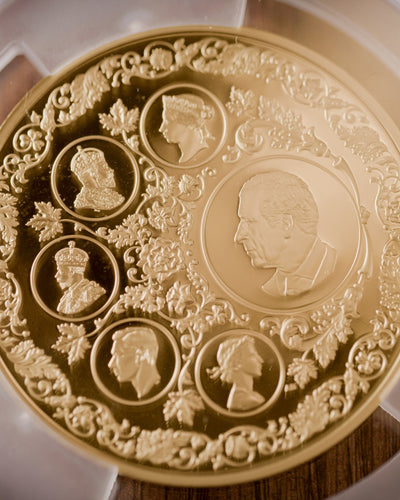
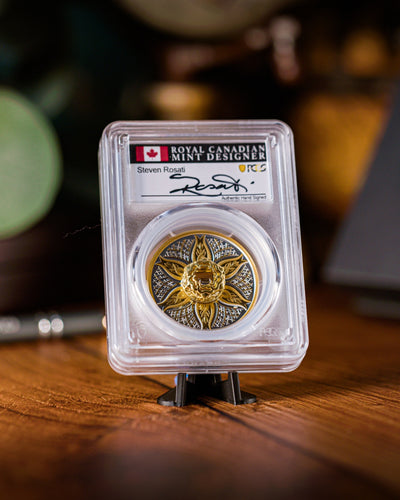
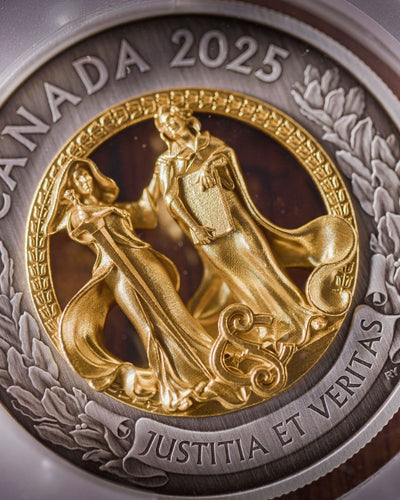
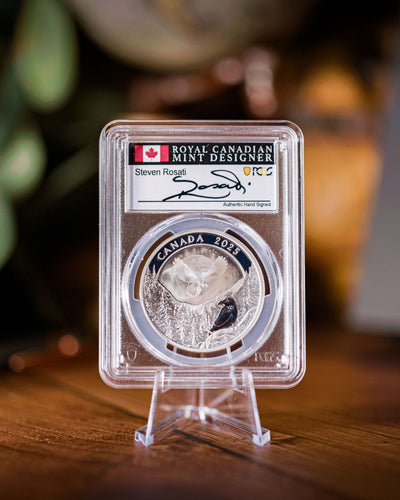
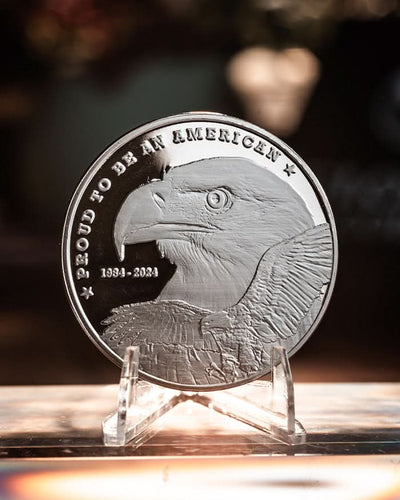
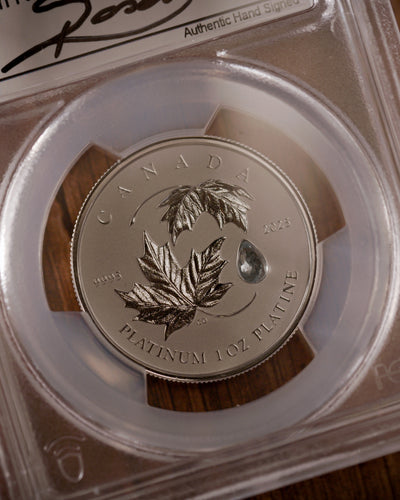
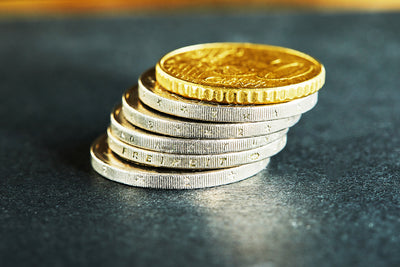
Leave a comment
This site is protected by hCaptcha and the hCaptcha Privacy Policy and Terms of Service apply.